Tun-Min Hung
Label-Aware Hyperbolic Embeddings for Fine-grained Emotion Classification
Jun 26, 2023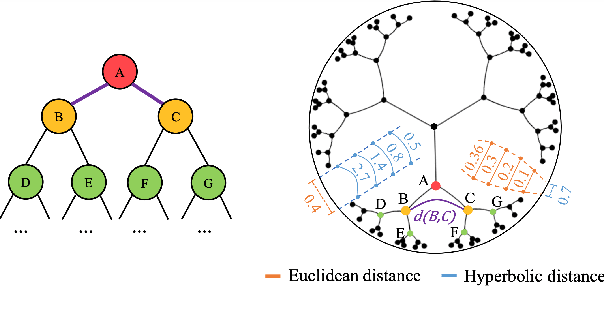
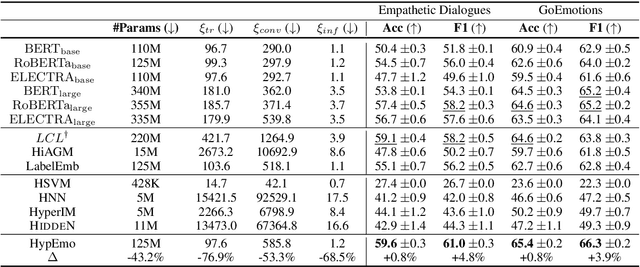
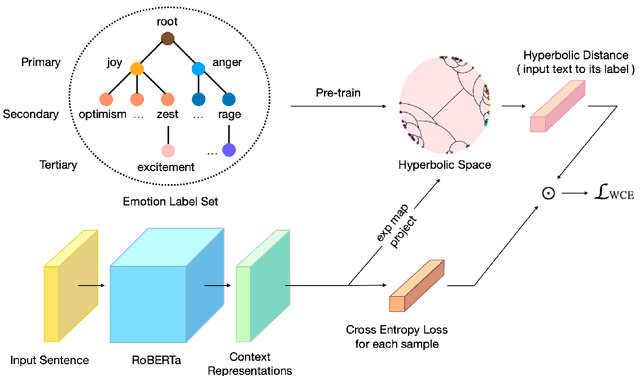
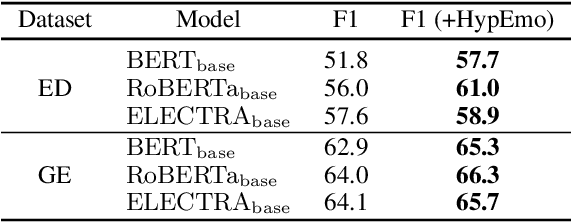
Abstract:Fine-grained emotion classification (FEC) is a challenging task. Specifically, FEC needs to handle subtle nuance between labels, which can be complex and confusing. Most existing models only address text classification problem in the euclidean space, which we believe may not be the optimal solution as labels of close semantic (e.g., afraid and terrified) may not be differentiated in such space, which harms the performance. In this paper, we propose HypEmo, a novel framework that can integrate hyperbolic embeddings to improve the FEC task. First, we learn label embeddings in the hyperbolic space to better capture their hierarchical structure, and then our model projects contextualized representations to the hyperbolic space to compute the distance between samples and labels. Experimental results show that incorporating such distance to weight cross entropy loss substantially improves the performance with significantly higher efficiency. We evaluate our proposed model on two benchmark datasets and found 4.8% relative improvement compared to the previous state of the art with 43.2% fewer parameters and 76.9% less training time. Code is available at https: //github.com/dinobby/HypEmo.
A Benchmarking Initiative for Audio-Domain Music Generation Using the Freesound Loop Dataset
Aug 03, 2021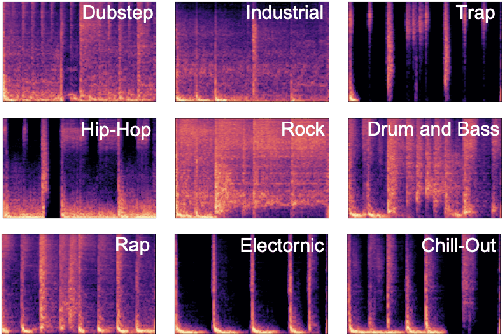

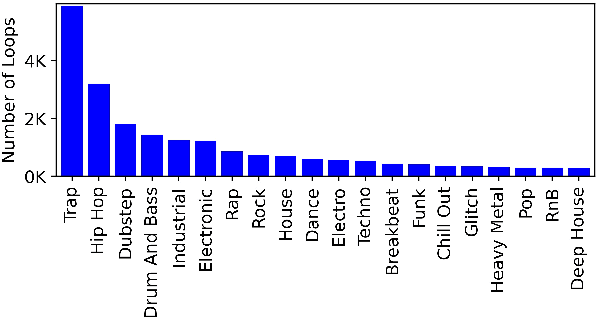

Abstract:This paper proposes a new benchmark task for generat-ing musical passages in the audio domain by using thedrum loops from the FreeSound Loop Dataset, which arepublicly re-distributable. Moreover, we use a larger col-lection of drum loops from Looperman to establish fourmodel-based objective metrics for evaluation, releasingthese metrics as a library for quantifying and facilitatingthe progress of musical audio generation. Under this eval-uation framework, we benchmark the performance of threerecent deep generative adversarial network (GAN) mod-els we customize to generate loops, including StyleGAN,StyleGAN2, and UNAGAN. We also report a subjectiveevaluation of these models. Our evaluation shows that theone based on StyleGAN2 performs the best in both objec-tive and subjective metrics.
 Add to Chrome
Add to Chrome Add to Firefox
Add to Firefox Add to Edge
Add to Edge